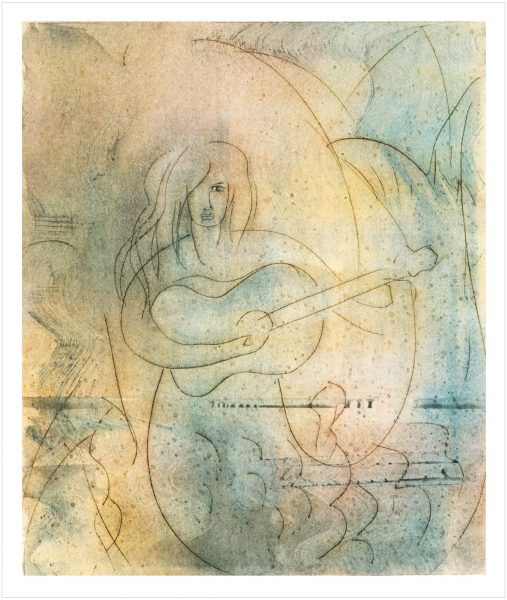
“Letters . . . art’s sweet hooky.”– Lorrie Moore
“I admire your guts in the midst of strangers.”– Dawn Powell
When you make a painting or a drawing do you address it to someone, as you would a letter? And if you do, what does it mean, to “address?” There is the verb: the shout, murmur, scrawl, the beseeching wail and the twirling in circles trying to see what the paint won’t reveal. And there is the noun: the housing. That is where the Muse lives, if you believe in such things.
The origin of the word “address” is from the French, adrecier, “To go straight toward, straighten, set right, point, direct.” Yet the relationship with a Muse is anything but a straight line. It is an unpredictable courtship, a not-so-fair trade of creative work in return for the recognition of meaning. I have always needed a muse, and it has felt sometimes like a weakness, a quirk of sentiment that has gone out of fashion. Men get them, of course, but – women? They are supposed to be the Muse, right? Women are expected to get their ideas immaculately, from thin air, without the whispers of naked sylphs leaning in to their ears. Either that or they fall under the spell of Pygmalian, shaped and molded by the all-powerful man, and spend the rest of their lives giving him the credit.
You might think these are parodies, ancient points of view long discarded. But just leaf back a few years, to the 1950’s, or even, let’s get specific, to 1974. Until that year, only 44 years ago, a woman could not get her own credit card without her husband’s signature. That woman would be my mother, who confronted this reality in her diary as she considered divorce in the 1970’s.
This month I have been helping my mother sort her historical archives and personal papers. It has been a dizzying trip back in time, excavating the corners of her 1910 pink Victorian. Stacked under the stair of a closet we found a dozen forgotten boxes of history. As we opened them we discovered, interspersed with manifestos and personal letters, early issues of MS, Lilith, Off Our Backs, and Pandora, among countless quarterlies and pamphlets about every imaginable movement for social justice. My mother has been a life-long writer and journalist, and a passionate advocate for feminism. In her prolific archives I can trace the path from compliant goddess to bohemian to a woman on the front lines of women’s liberation. I can see how raw and how recent the past is. I can see how hard-won and personal the journey has been, and how important the act of writing letters and journals is in living history and being conscious that you are living it.
These boxes of paper have dusty, pungent physical presence. The smell of old and well-traveled paper is like no other. If you throw out a remnant of this vintage without looking, it will come looking for you later and crumple you in its fist. So you look. [Read more…]